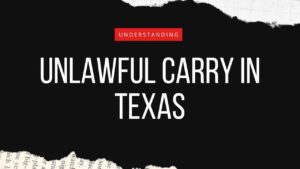What is FFL?
The term FFL is used to describe a Federal Firearms License. We are often asked whether a person needs an FFL to sell a gun. The answer is, “typically, yes if you are the in business of selling guns, or regularly sell guns.” However, there are also exceptions.
Under federal law, specifically 18 USC 922, it is unlawful for any person “except a licensed importer, licensed manufacturer, or licensed dealer” to “engage in the business of dealing” in firearms.
Do I Need a Federal Firearms License to Sell Ammunition?
Under the same statute, dealing in ammunition has the same prohibition.
What are the Federal Firearms License Exceptions?
At first blush, this law appears to state that only licensed dealers, manufacturers, or importers may sell a firearm. However, those that read this and wonder how the Second Amendment fits into this statute raise a good question. Is it really that simple? It’s understandable that Walmart, Cabelas, Bass Pro shops, gun stores, and the like need a license to sell on a regular basis, but do people who want to sell their personal firearm need a license to do so? Are they relegated to using a gun broker? What about gun shows?
As is often the case with federal statutes, the specific wording helps answer these questions. Specifically, not all selling of firearms constitutes ‘dealing’ under 922.
Put in non-legalese, the law balances the Second Amendment right to bear firearms with public safety concerns regarding the transfer of them. To perform this balancing act, Sections 921 and 922 seek to limit large-scale transfer of guns to persons who have a federal firearms license. These persons are required to conduct background checks amid a myriad of regulations.
However, such a license is not necessary for a person selling a gun who is not in the business of dealing firearms for profit. For example, if a person’s grandfather passes away and bequeaths a rifle, then the inheritor does not need a license to sell that one firearm.
Where things get tricky, however, is when people buy and swap multiple firearms and claim such activity as “collecting.” For instance, many ATF arrests occur at gun shows where agents interpret certain activity as inconsistent with collecting and consistent with dealing. These tenets are not always black and white.
Below are the specific statutes defining the law regarding sale of firearms. Under 18 USC 921 the terms ‘dealer’ and ‘engaged in the business of dealing’ are defined.
Who is a Dealer?
The term “dealer” means (A) any person engaged in the business of selling firearms at wholesale or retail, (B) any person engaged in the business of repairing firearms or of making or fitting special barrels, stocks, or trigger mechanisms to firearms, or (C) any person who is a pawnbroker. The term “licensed dealer” means any dealer who is licensed under the provisions of this chapter. The term “collector” means any person who acquires, holds, or disposes of firearms as curios or relics, as the Attorney General shall by regulation define, and the term “licensed collector” means any such person licensed under the provisions of this chapter.
What does it mean to be engaged in the business?
The term “engaged in the business” means–
(A) as applied to a manufacturer of firearms, a person who devotes time, attention, and labor to manufacturing firearms as a regular course of trade or business with the principal objective of livelihood and profit through the sale or distribution of the firearms manufactured;
(B) as applied to a manufacturer of ammunition, a person who devotes time, attention, and labor to manufacturing ammunition as a regular course of trade or business with the principal objective of livelihood and profit through the sale or distribution of the ammunition manufactured;
(C) as applied to a dealer in firearms, as defined in section 921(a)(11)(A), a person who devotes time, attention, and labor to dealing in firearms as a regular course of trade or business with the principal objective of livelihood and profit through the repetitive purchase and resale of firearms, but such term shall not include a person who makes occasional sales, exchanges, or purchases of firearms for the enhancement of a personal collection or for a hobby, or who sells all or part of his personal collection of firearms;
What does “Objective of Livelihood and Profit” mean?
The term “with the principal objective of livelihood and profit” means that the intent underlying the sale or disposition of firearms is predominantly one of obtaining livelihood and pecuniary gain, as opposed to other intents, such as improving or liquidating a personal firearms collection – provided that proof of profit shall not be required as to a person who engages in the regular and repetitive purchase and disposition of firearms for criminal purposes or terrorism. For purposes of this paragraph, the term “terrorism” means activity, directed against United States persons, which
Ultimately the Second Amendment does allow for collection and inheritance of firearms. We have, however, represented individuals who faced federal criminal charges based on their gun swaps, trades, and collections. We have successfully terminated prosecution for clients in these situations, and defend federal gun charges. We have also successfully negotiated the return of firearms after seizure by the federal government. If you are facing criminal charges because of guns you have purchased, sold, or swapped, call us immediately at (817) 203-2220.
What is the Unlawful Transfer of Certain Weapons in Texas?
Texas has placed limits on a person’s ability to transfer weapons. For example, a person cannot provide a handgun to another when they know the person intends to use the handgun in an unlawful act or otherwise use the gun contrary to law. Providing a gun includes selling another a gun, leasing it, loaning it, or giving it to another. Similarly, a person cannot sell a firearm or ammunition, either intentionally, knowingly, or recklessly, to someone who is intoxicated.
The law also prohibits selling either a firearm or ammunition knowingly to a person convicted of a felony, until the later of either of the following:
- The fifth anniversary of a person’s release from confinement following a felony conviction; or
- The fifth anniversary of a person’s release from community supervision, parole, or mandatory supervision following a felony conviction.
Can You Transfer Firearms Under Active Protection Orders?
A person may not sell, rent, lease, loan, or give a handgun to people under an active protective order. Additionally, a person cannot purchase, rent, lease, borrow, or receive a handgun as a gift when they are the subject of an active protective order.
Under the statute, an “active protective order” does not include a temporary protective order before the court holds a hearing on the matter.
Can You Transfer Weapons to Children?
It is also against the law to either intentionally or knowingly sell, rent, lease, or give a firearm, club, or illegal knife to a child. Additionally, offering to sell, rent, lease, or give a firearm, club, or illegal knife to a child is prohibited by law. However, where a parent or person having legal custody of the child has previously given written permission for the sale or other transfer, by gift, loan, etc., this is considered lawful consent to the transfer and a defense to the charge.
Review From a Client’s Mother on a Federal Criminal Matter:
By: Z. B.
Title: Don’t look any further.
Hi. My goodness, with our son addicted our lives turned upside down. Benson Varghese gave us hope. He and his staff worked tirelessly, with every question answered with truth. No rock was left unturned. With their hard work our son’s life has been saved. We owe a huge “thank you.” to Varghese Summersett. If I could rate a 10, I would ask to give a 15. These are the folks to call when things go off track. Thank you again!



